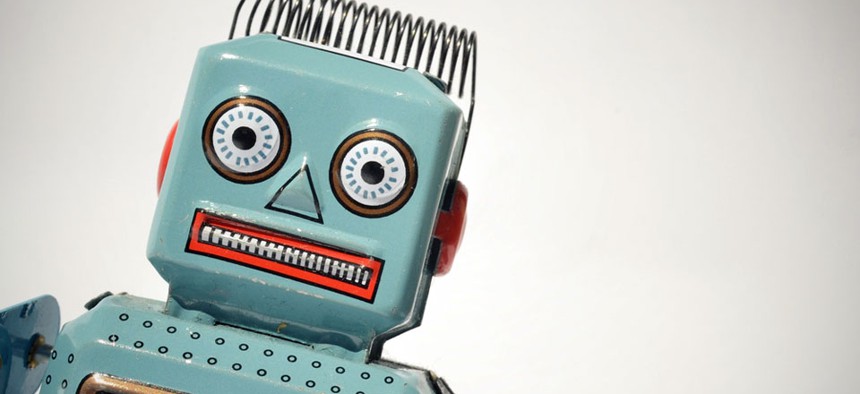Steve Wozniak Says World Domination by Robots Could be Thwarted by Simple Physics

josefkubes/Shutterstock.com
Several prominent scientists worry about the rise of artificial intelligence and robots, and about humanity’s place in the world if robots take over.
Prominent scientists who are worried about the rise of artificial intelligence and robots, and about humanity’s place in the world if robots take over. Apple co-founder Steve Wozniak has added his name to that list.
In an interview with the Australian Financial Review on March 23, Wozniak spoke of his trepidation the development of artificial intelligence, saying, “The future is scary and very bad for people.” He said that he is a relatively recent convert to the idea that human comprehension could be surpassed by robots in the future, and is going to make sure to play nice with his gadgets:
“Will we be the gods? Will we be the family pets? Or will we be ants that get stepped on? I don’t know about that … But when I got that thinking in my head about if I’m going to be treated in the future as a pet to these smart machines … well I’m going to treat my own pet dog really nice.”
But Wozniak suggests that physics could stop the robot onslaught, or at least slow its roll.
In computer science, there’s a guiding principle called Moore’s Law, which states that computer processing speed doubles roughly every two years. That’s held true more or less since the 1970s, but this may soon change, as the size of a silicon transistor is expected to be the size of a single atom, the Financial Review says.
Any smaller than that, and scientists will need to figure out how to manipulate subatomic particles—a field commonly referred to as quantum computing—which has not yet been cracked.
What does this mean for super-intelligent robots? If we can’t continue to create faster and faster computers every few years, we won’t be able to develop the processors necessary for artificial intelligence that can think as freely as our monkey brains, let alone surpass them.
Unless, of course, we offload our robots’ brains to the cloud. In which case, we should continue to be worried.
(Image via josefkubes/ Shutterstock.com)





